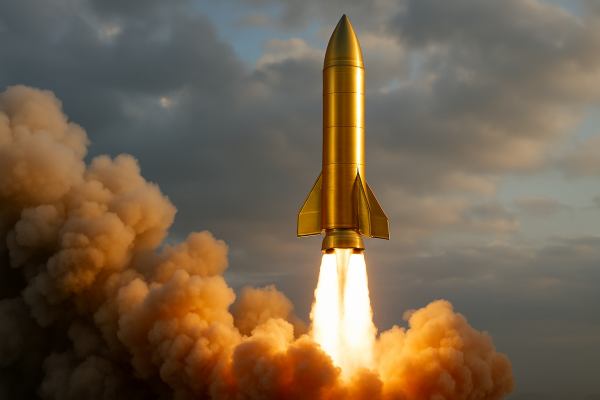September 25th, 2020 | 12:24 CEST
K+S, Grenke, Desert Gold: When does uncertainty become an opportunity?
When shares make losses over weeks and months, shareholders hope for an end to the sell-off. Potential buyers ask themselves whether the investment opportunity has already arisen. But the end of a downward trend can always only be determined afterward and can hardly ever be determined exactly. Rather, investors must shed light on the background to a price decline to decide whether it is permanent or merely temporary. The K+S fertilizer group has already been selling off for many years - on a five-year horizon a loss of more than 80% has been recorded - but what is the reason for this?
time to read: 4 minutes
|
Author:
Mario Hose
ISIN:
CA25039N4084 , DE000A161N30 , DE000KSAG888
Table of contents:

"[...] We have built one of the largest land packages of any non-producer in the belt at over 440 sq.km and have made more than 25 gold discoveries on the property to date with 5 of these discoveries totaling about 1.1 million ounces of gold resources. [...]" Jared Scharf, CEO, Desert Gold Ventures Inc.
Author
Mario Hose
Born and raised in Hannover, Lower Saxony follows social and economic developments around the globe. As a passionate entrepreneur and columnist he explains and compares the most diverse business models as well as markets for interested stock traders.
Tag cloud
Shares cloud
K+S: What will the sale of the US salt division bring?
Just a few years ago, K+S was a source of hope and a beneficiary of the growing world population. The more people there are in the world, the more food that must be provided, which was the simple consideration at the time. In 2017, K+S opened a potash plant in Canada and accepted high debts for it. But the demand for potash fell and the price collapsed. K+S even had to cut back production. To reduce its debt burden, the group announced the sale of its US salt division and prescribed itself a drastic cure.
But so far the share price has only reacted intermittently - the basic trend remains negative. The main reason for this is that margins are weak and the interest burden is weighing heavily on the company. In the next few weeks, details of the sale of the US salt division will be announced. If an attractive price is achieved here, this could be a liberating blow for the share. Recent history has shown, however, that investors in K+S are happy to use higher prices to sell again.
The proverbial "sell" button has recently also been pressed by many investors in Grenke. In recent weeks, the financing specialist from Baden-Baden has been exposed to accusations from short-sellers who questioned the company's balance sheet and other events surrounding the franchise model. In the meantime, Supervisory Board member and founder Wolfgang Grenke has resigned from office and the company itself has hired independent auditors to shed light on the matter. Grenke still rejects all accusations. But what does that mean for investors?
Grenke: Opportunity to get started or calm before the storm?
The share price has fallen by more than 50% on a one-year horizon. Most recently, the value stabilized above thirty euros. By way of comparison, on 15 September one share was still worth more than EUR 50. In the meantime, the share has gone rollercoaster. Several fund managers have since positioned themselves and rejected a similarity between Grenke and the Wirecard case. Some hardcore investors have even taken up the shares of Grenke again.
The fact that the share has been an investor's favorite for many years is also shown by the return over ten years: Despite the crash, long-term investors can look forward to a return of more than 180%. If the accusations can be refuted, the share price could rise again from its current level - the scandal could even ensure that the Baden-Baden-based company will be able to tighten the right screws in the future and increase transparency. But what if there is some truth in the accusations?
Market mood causes volatility
Similar to Grenke, the share of the Canadian gold company Desert Gold, has recently had to let go of its feathers and suffered a significant double-digit loss. Unlike Grenke, however, there is no scandal behind it. Desert Gold is not heavily indebted in a difficult market like K+S. Desert Gold is searching for gold in the west of Mali. Mali is the fourth-largest gold producer in Africa. Desert Gold controls two projects in Mali and, with the SMSZ project, has what it claims to be the largest contiguous land package within the Senegal-Mali-Shear zone. Companies such as B2Gold, Barrick Gold, and AngloGold Ashanti are also active in this sector.
The company recently released results from drilling and rock sampling. In addition to expanding existing deposits, the Company has reportedly been able to identify new deposits. It was only in early September that the compay closed a financing of CAD 6.8 million at CAD 0.28 per share. This translates into around EUR 0.18 per share. Currently, one Desert Gold share is quoted at around EUR 0.11 on German stock exchanges.
Although both the potential mining area in Mali is considered promising and is also in the focus of large companies and Desert Gold has so far presented convincing drilling results, the share has fallen sharply due to the recent lower gold prices. On the one hand, this is due to the strong price gains of the share in the previous months and other factors: Shares of small exploration companies are traditionally subject to higher fluctuations.
Desert Gold: business model still intact
Whether at K+S, Grenke, or Desert Gold, shareholders are currently confronted with some uncertainties. Given that the gold prices are still high in a historical context and the recent successful financing, the Desert Gold business model still seems to promise success despite the recent price losses. With a market capitalization of only about EUR 17 million, investors should be aware of Desert Gold's risk/reward profile. The situation is different for the two German companies: Both K+S and Grenke do not know whether the coming weeks will bring about a turnaround or whether the companies will remain in their respective deadlocked situations.
Conflict of interest
Pursuant to §85 of the German Securities Trading Act (WpHG), we point out that Apaton Finance GmbH as well as partners, authors or employees of Apaton Finance GmbH (hereinafter referred to as "Relevant Persons") may in the future hold shares or other financial instruments of the mentioned companies or will bet on rising or falling on rising or falling prices and therefore a conflict of interest may arise in the future. conflict of interest may arise in the future. The Relevant Persons reserve the shares or other financial instruments of the company at any time (hereinafter referred to as the company at any time (hereinafter referred to as a "Transaction"). "Transaction"). Transactions may under certain circumstances influence the respective price of the shares or other financial instruments of the of the Company.
Furthermore, Apaton Finance GmbH reserves the right to enter into future relationships with the company or with third parties in relation to reports on the company. with regard to reports on the company, which are published within the scope of the Apaton Finance GmbH as well as in the social media, on partner sites or in e-mails, on partner sites or in e-mails. The above references to existing conflicts of interest apply apply to all types and forms of publication used by Apaton Finance GmbH uses for publications on companies.
Risk notice
Apaton Finance GmbH offers editors, agencies and companies the opportunity to publish commentaries, interviews, summaries, news and etc. on news.financial. These contents serve information for readers and does not constitute a call to action or recommendations, neither explicitly nor implicitly. implicitly, they are to be understood as an assurance of possible price be understood. The contents do not replace individual professional investment advice and do not constitute an offer to sell the share(s) offer to sell the share(s) or other financial instrument(s) in question, nor is it an nor an invitation to buy or sell such.
The content is expressly not a financial analysis, but rather financial analysis, but rather journalistic or advertising texts. Readers or users who make investment decisions or carry out transactions on the basis decisions or transactions on the basis of the information provided here act completely at their own risk. There is no contractual relationship between between Apaton Finance GmbH and its readers or the users of its offers. users of its offers, as our information only refers to the company and not to the company, but not to the investment decision of the reader or user. or user.
The acquisition of financial instruments entails high risks that can lead to the total loss of the capital invested. The information published by Apaton Finance GmbH and its authors are based on careful research on careful research, nevertheless no liability for financial losses financial losses or a content guarantee for topicality, correctness, adequacy and completeness of the contents offered here. contents offered here. Please also note our Terms of use.




